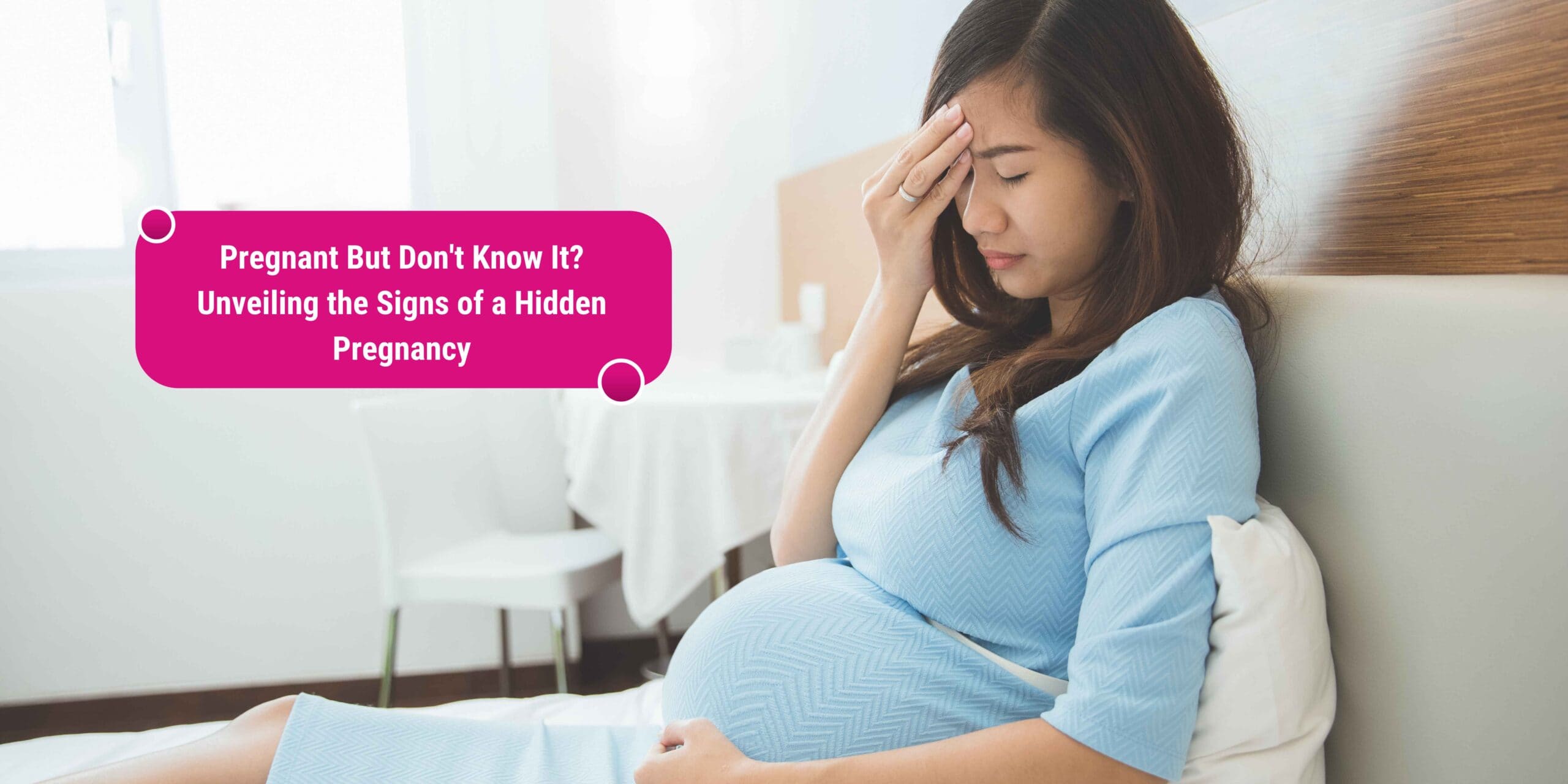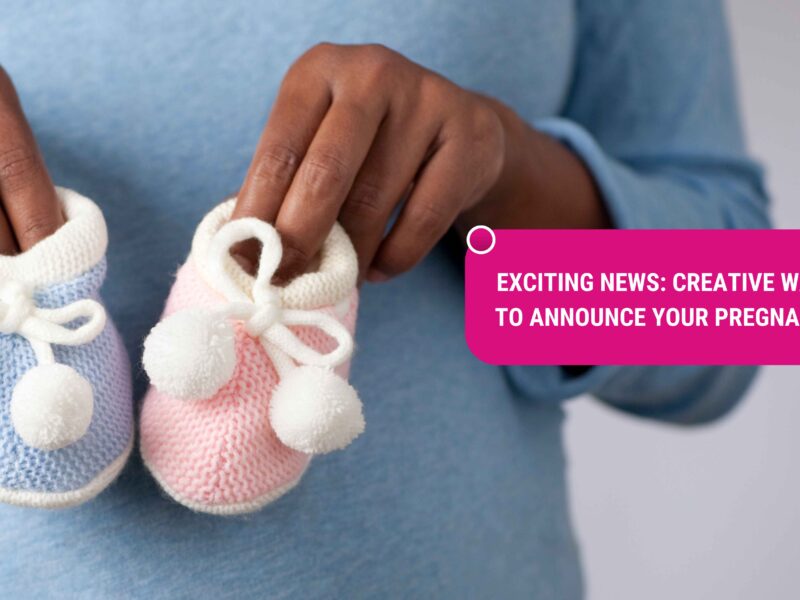But as unbelievable as the concept of cryptic pregnancy may seem, this confusion is entirely warranted. Because of the numerous changes a woman typically experiences during pregnancy, including missed periods, increased breast size, and weight gain – symptoms that seem to be synonymous with being pregnant – it is widely assumed that cryptic pregnancies occur few and far between the women they involve. As a result, it is typically assumed that a woman who goes into labor without realizing that she is pregnant is mentally ill or cognitively impaired in some way, or in denial about the pregnancy and intentionally hiding it. In fact, quite the opposite is true. Women with cryptic pregnancies are usually in excellent mental standings before, during, and after giving birth. Their pregnancies remain hidden from them for a variety of psychological and physical reasons, such as resistance to the idea of being pregnant, lack of awareness of the symptoms in question, irregular menstrual cycles, and an atypical fetal position. In short, cryptic pregnancies are truly hidden pregnancies.
Throughout the years, many television shows and mock documentaries have portrayed women who gave birth without ever realizing that they were pregnant. But can such an event really occur? Surprisingly, the answer is yes! The phenomenon of a woman not knowing she is pregnant until she goes into labor is known as cryptic pregnancy. This is because there are cases in which a pregnancy remained entirely concealed until delivery, with the women involved having no prior suspicions. While certainly unusual, this situation can occur in women of all different ages, backgrounds, and ethnicities. It is no small wonder that the idea of a woman not realizing that she is pregnant until after she goes into labor can be so hard to swallow.
Understanding Hidden Pregnancies
Difficulties occur in the early phases of pregnancy identification such as the non-belief of the woman in being pregnant, pathological belly weight gain linked to other illnesses, denials regarding the developing elongated uterus, overshooting gestation dates, concealment of menstrual irregularities, belief in the occurrence of early menopause, the continuation of menstrual period-like bleeds, unrecognized second trivial twin or co-twin, anatomical factors e.g. anhidrotic dysplasia, transient hydramnios, mutism, sudden infant demise syndrome, the sudden presence of postmortem classical maternal signs and symptoms without antenatal signs, symptoms, care plan, and poor healthcare conductance.
The hidden pregnancy phenomenon is a rare experience where an individual carries an unwitnessed pregnancy until delivery without recognizing it was gestation. The lesser effort in understanding the enigma of the hidden pregnant state prescribes a poor pattern in reacting to the woman when she starts the spontaneous labor process. The successful delivery of the baby is revealed as a surprise to the family and healthcare providers. The proof of an underlying pregnancy becomes miraculous in nature when labor commences. Usually, the mother feels immense pain causing consultation with the obstetrician or to some even assisted home delivery without medical help or even unassisted home delivery during which she has to manage the process.
The Science Behind Hidden Pregnancies
Before we get into the possibility of a woman not realizing that she is pregnant, let’s first discuss how most women typically arrive at the conclusion that they are indeed carrying a child within their wombs. Women usually learn of their pregnancy in one of two ways. The first is by noting characteristic changes in their normal body functions, such as a skipped menstrual period after the date that it is expected, and/or some symptoms typically experienced by pregnant women, such as nausea, breast tenderness, and frequent urination. The other method of realizing one is with child is by subsequently using a pregnancy test out of concern as to the possible underlying cause of such classic pregnancy indications. Once diagnosed, women tend to make use of medical and complementary services that facilitate wellbeing for themselves and their developing child at every stage of the pregnancy, including before birth, i.e. during the prenatal period, the birthing process, and postnatally.
How do women typically realize they are pregnant?
Contrary to common misconception, a woman is typically aware that she is carrying a child within her by the time she reaches the second trimester of her pregnancy. If not through objective indicators, such as a growing baby bump, the fetal heartbeat at the hands of a medical professional, or the experience of feeling her baby’s first movements, then certainly because of the use of medical equipment, such as an ultrasound, which exposes the fetus to view. This early stage of pregnancy, which goes unbeknownst to most women who are with child, is called the first trimester. The question one may ask is how a pregnant woman would not know that she is, indeed, pregnant? In order to understand the phenomenon of hidden pregnancies a bit better, it is important to take a step backwards and lay the groundwork upon which this subject is built.
How Can a Pregnancy Go Unnoticed?
The possible reasons why a pregnancy may pass unnoticed are many and varied. Firstly, for a pregnancy to go unnoticed by the mother, it is vital that she does not think of herself as being pregnant. A number of psychological factors may help maintain this state of denial. The woman may not want to have a baby for reasons such as social problems, the individual’s mental health, economic factors, or living together in harmony with other persons. The denial may be accompanied by a state of extreme emotional tension which causes amnesia for the very existence of the pregnancy, a form of ‘mental transformation’. Highly stressful situations, trauma, and the presence of psychiatric disorders may lead to the pregnancy being completely denied, while marital difficulties, lack of communication between wife and husband, or the arrival of a baby that was not planned can also play a role. A criminal pregnancy denial is very rarely seen. Occasionally the previously unknown pregnancy was terminated by the mother herself.
In some cases, women may not know that they are pregnant until labor has begun because the pregnancy went unnoticed. This type of pregnancy is referred to as a concealed pregnancy. In other cases, the pregnant woman herself may recognize some signs of pregnancy but miss others. When this happens, the pregnancy is described as being unknown to the mother.
Common Signs and Symptoms of a Hidden Pregnancy
Hidden pregnancies are extremely uncommon, maybe around one in 400, but ultimately, people do get pregnant accidentally without realizing it. In recent years, numerous stories of ladies who understand they are pregnant unexpectedly at labor and delivery while showing no symptoms of pregnancy in the norm have garnered considerable media concern. Most women have an intuition that anything is wrong, though; and a female who has no concept she is pregnant can become scared for life, having no time to understand or prepare herself for labor.
5 months pregnant and not even the slightest idea? This scenario sounds quite unreal and bizarre, doesn’t it? But, though you may not know it now, it is actually not abnormal for it to happen, especially if you show little or no pregnancy-related signs. A number of apparent symptoms of a hidden pregnancy, including stress and fluctuations, changes in weight and menstrual cycle, could sound like a coincidence, but it’s a good idea to seek expert advice right away if you’re using birth control pills, are of premenopausal age, are under a lot of anxiety, actually increased or lost weight, or are seeing a change in your menstrual cycle. See your doctor straight away if you are going through numerous or all of these apparent signs and symptoms of a hidden pregnancy.
Physical Changes

An enlarging womb is the most outward sign of pregnancy. It takes some time, but will eventually become apparent to even the most casual observer. It might be thought of as an “invisible baby syndrome”. But if he or she is not seen, felt, or heard, there is just no way the realization of pregnancy will occur. The overall physique should change dramatically during pregnancy. A woman’s waistline thins out a bit before rounding out again when she gets pregnant. “Baby fat” may not be limited to the dieters of the 70s. Today, those extra pounds around the waist are also a sign of pregnancy. After the initial round of “body change”, it’s common for a woman’s abdominal muscles to bind together in the middle allowing the womb to “pop” out. This is indicative of nearly 20-21 weeks gestation. If you’re gaining weight, try not to despair. Your doctor will be monitoring your progress. If you’re not gaining weight or growing in size, he or she will recommend you gain more weight.
A woman’s body goes through many changes when she becomes pregnant. Apart from the obvious symptoms, i.e. missing or odd menstrual periods, many women claim to feel no different. It is quite common for pregnant women in their late 30s or 40s to still have periods. If these women do not gain much weight or show very little increase around the waist, it’s easy for them and their families not to be aware of what’s happening in their bodies. It’s almost impossible for a woman to be pregnant and not show any outward signs. After about 20 weeks of gestation, the risk is zero. However, it’s common for a woman to “carry small” due to a lax abdominal wall.
Psychological and Emotional Factors
One of the main psychological factors that leads a woman not to manifest any pregnancy sign is that she is tight-lipped and introverted. The woman who hides her pregnancy is called adoptant, a word derived from the verb “to adopt” with the same meaning of film comics, novels, newspapers, and television. Adoptants don’t realize the possible side effects due to the estrogen-progestin treatment, don’t see themselves as pregnant women until childbirth is achieved, stay free of the fear of a potential dystocia, the fear of a congenital malformation that might be found at the ultrasound, and any psychological implication connected to the presence of a new life within us. These women accept and tolerate with difficulty the new status. They don’t want to get involved in any phase of pregnancy and undergo their body changes without altering their habits and their clothes. The discovery of the pregnancy is often a surprise for everyone and they frequently have nightmares, phobias, and bad dreams of parturition.
Psychological and emotional factors have a major role in the production of hormonal changes in a woman’s body. Each woman goes through experiences preventing her from attributing pregnancy signs, either because she doesn’t think she is pregnant or because she wants a baby and the context could bring her to create imaginary signs of pregnancy. This can be done because the wish for a baby is so strong; hence the wish is father to the thought. Another less pathological reason is that in some cases the pregnancy after a long wait could not give her joy because she suffered through the past, her body was depleted by previous pregnancies, she has a passive behavior, or this pregnancy had initially been planned by her partner and then postponed in time. The fear of a dystocia, the fear of being not able to take care of the child, the fear of a congenital malformation and a missed abortion, fear of being judged as inadequate and a fear caused by a phobia are revealed in somatization altering the woman and sometimes her partner from the moment the embryo starts appearing.
Denial and Lack of Awareness
The state of denying the pregnancy may work for the mother, preventing her from confronting the precise, physical, and psychological meaning of the pregnancy. The personal and social meanings attached to pregnancy are so important that women who conceive naturally don’t recognize their pregnancy because they cannot accept the reality of it. The pregnant woman is so convinced that she is not pregnant that, as she denies her pregnancy throughout gestation, thus making it obvious to her environment. Data described by Scheper-Hughes & Wacquant show that this is the case. The women – mother and daughter – share a profound emotional experience based on their shared denial.
Some women accidentally end up pregnant without realizing it, even up to their delivery dates. Surprise pregnancies occur more frequently than one might suppose and to a more varied set of women. These women, who have apparently not known, are regularly and widely represented in the media as being in a state of denial. Within public accounts of concealed pregnancy, ‘denial’ usually operates accountably at a high level of generality, rather as ‘disability’ is used to sweep a wide range of kinds. Pregnancy denial is understood as a complex and multilayered defense mechanism when a woman denies, either consciously or unconsciously, the existence of a growing fetus inside her along with the attachment and the bond that relate her to the growing being.
The Implications of a Missed Diagnosis
There are psychological implications too, with feelings of shame and embarrassment, an overall sense of feeling lost and overwhelmed, and experiencing denial of the situation. Women may sometimes feel like they are intruding on their baby’s privacy by doctoring for themselves. Additionally, there are potential social and financial implications; family, significant other, and working women will have to deal with the shock, adjust, and handle the burden of the sudden deliverable addition to their life while also caring for their own health. Women giving birth to babies with an unknown pregnancy experience through established facilities don’t usually get financial assistance and may find themselves in a difficult situation after the baby is born. The implications are severe and challenging, acknowledging unpredictable pregnancies is vital for reducing health, psychological, social, and financial repercussions for women who are experiencing ones.
Encountering a hidden pregnancy poses many health and psychological implications for both the woman and her unborn child. Some of the health threats include heart disease, stroke, kidney disease, poor insulin production leading to gestational diabetes or diabetes, sleep apnea, and osteoarthritis caused by the increased stress and weight on their bodies, and increased cardiovascular health risks. In a situation where a pregnant woman is unaware of her pregnancy and the baby keeps growing, causing the uterus to stretch, which could lead to a ruptured womb resulting in bleeding, physical damage, infection, and sometimes death for the mother. Another serious health issue is pre-eclampsia, a rare and life-threatening pregnancy-related condition that usually occurs during the second half of pregnancy or soon after the baby is delivered. The only cure is to deliver the baby; however, this could cause premature birth leading to health problems in the baby. Furthermore, women who are unaware of their pregnancy may continue engaging in poor nutrition, drug use, and smoking, putting the baby at risk for premature birth, low birth weight, and poor overall health outcomes.
Health Risks for Mother and Baby
Resistance to the hidden pregnancy may lead to health problems that can only be resolved with a healthcare professional. A report presented a case of resistance to pregnancy until it was discovered during childbirth by describing a woman with Wilson syndrome who had congenital adrenal hyperplasia. Therefore, we first describe which pregnant women (mothers) have resistance probes and their experiences from the maternity nurse’s perspective. Then, we identify health-related situations that can arise during the hidden pregnancy period. Furthermore, we identify the risks that could arise for the unborn baby due to symptoms or treatments that the pregnant woman might have during pregnancy or before giving birth.
While most women look back at their pregnancy throughout the years, there are some women who have no recollection about their pregnancy for several months. This situation is called a “cryptic pregnancy” or a “hidden pregnancy” where women are oblivious about their pregnancy and are unaware of it until birth or after. There are some challenges to making such an unexpected discovery. Therefore, in this chapter, the goal is to delineate challenges in recognizing pregnancy and altering one’s life during the cryptic pregnancy from a maternity nurse’s perspective. Moreover, the health risks for mother and baby relating to the resist during the hidden pregnancy will be outlined. The aim is to describe the health risks that may arise for the mother or baby due to symptoms or treatments during or before the baby’s birth in a hidden pregnancy.



